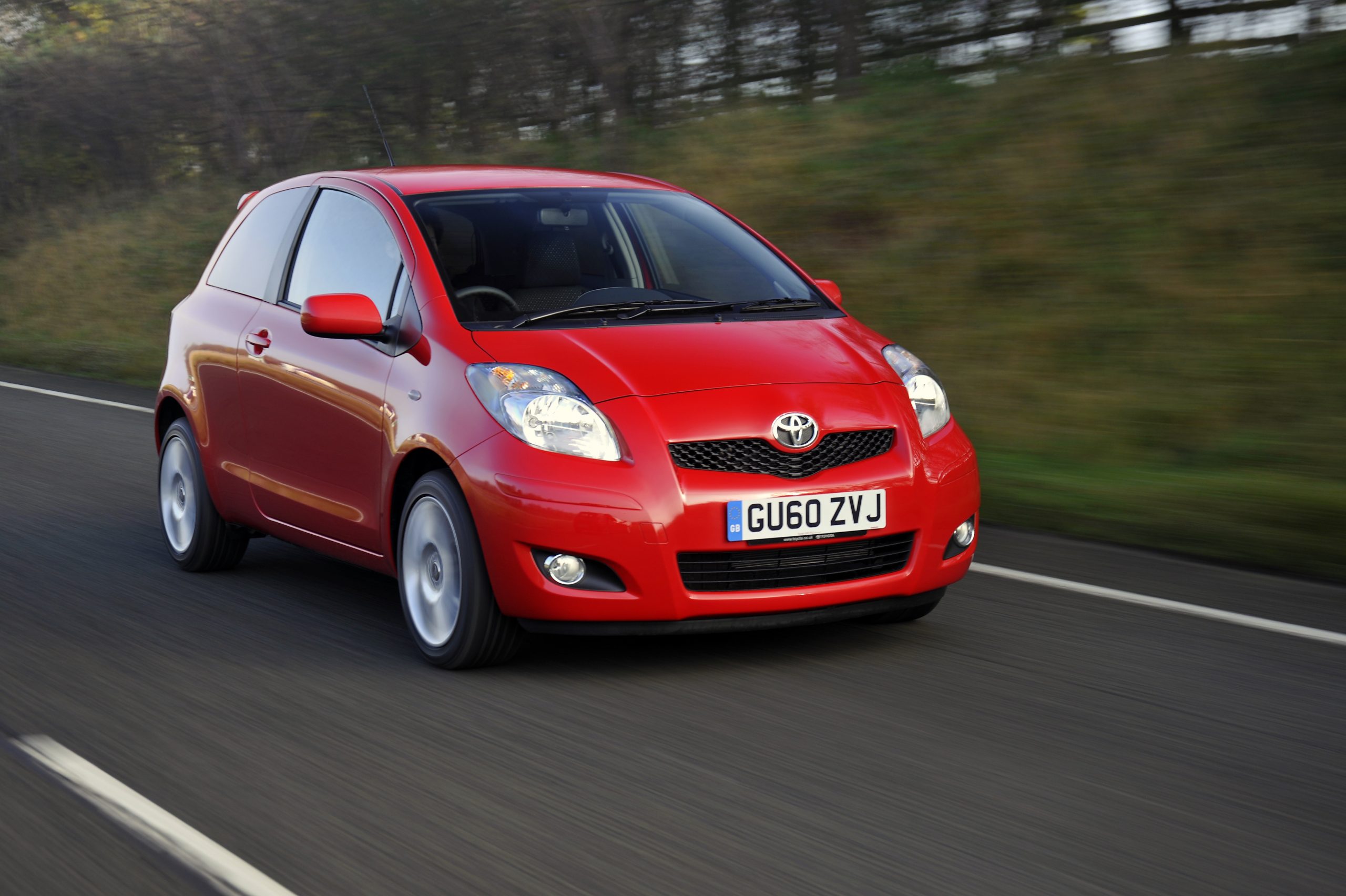
2006 Yaris hatchback 4-door
Ghanaian roads showcase a wide range of vehicles from manufacturers across the globe. From elite brands like Mercedes Benz and BMW to emerging Chinese names like Jetour and Wuling Motors, the diversity in Ghana’s motor industry is apparent. This variety makes it easy to observe shifts in car trends, especially in a country where access to comprehensive data is limited.
One car that stands out on these roads for its sheer abundance is Toyota’s entry-level model, the Yaris. Toyota’s popularity across Africa is unmatched, owing largely to its reputation for producing reliable, nearly indestructible engines. It wouldn’t be an overstatement to say that Toyota has played a pivotal role in keeping Ghana on the move, with the Yaris leading the charge as a reliable and economical choice for many Ghanaians today. The odd part about the mega rise of popularity of the Yaris is that, many of the examples on the road are older second-generation variants. So why exactly are these cars so popular?
AFFORDABLE, FUEL EFFICIENCY AND EASY TO MAINTAIN.
Toyota has mastered the key criteria that consumers consider when purchasing a vehicle, with reliability topping the list. Spotting a broken-down Toyota on the roadside is as rare as seeing an albino lion at the zoo. The Yaris, in particular, is renowned for its dependable powerplant, one that’s reliable, fuel-efficient, and easier to maintain than many of its competitors, like the Chevrolet Aveo, Ford Fiesta, and Hyundai Accent.
The Yaris appeals even more to Ghanaian consumers with its range of engine options, from a 1-liter 3-cylinder to a 1.5-liter inline 4-cylinder. With petrol prices currently over 15 cedis per liter, the Yaris offers significant fuel savings at the pump, delivering an impressive 52.3 mpg for the 1.0-liter engine, 44 mpg for the 1.3-liter, and 31 mpg for the larger 1.5-liter.
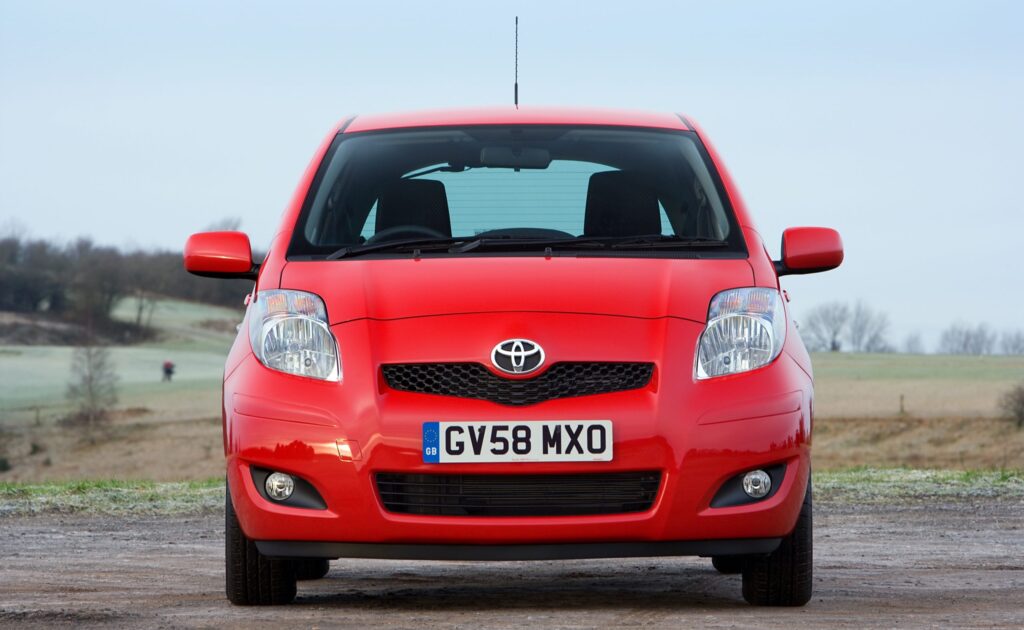
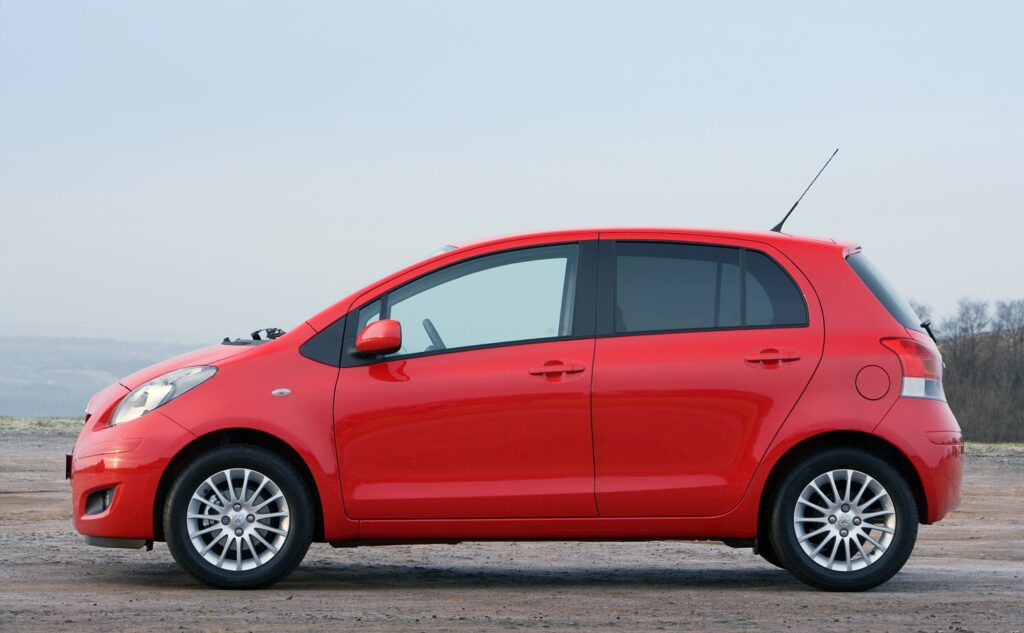
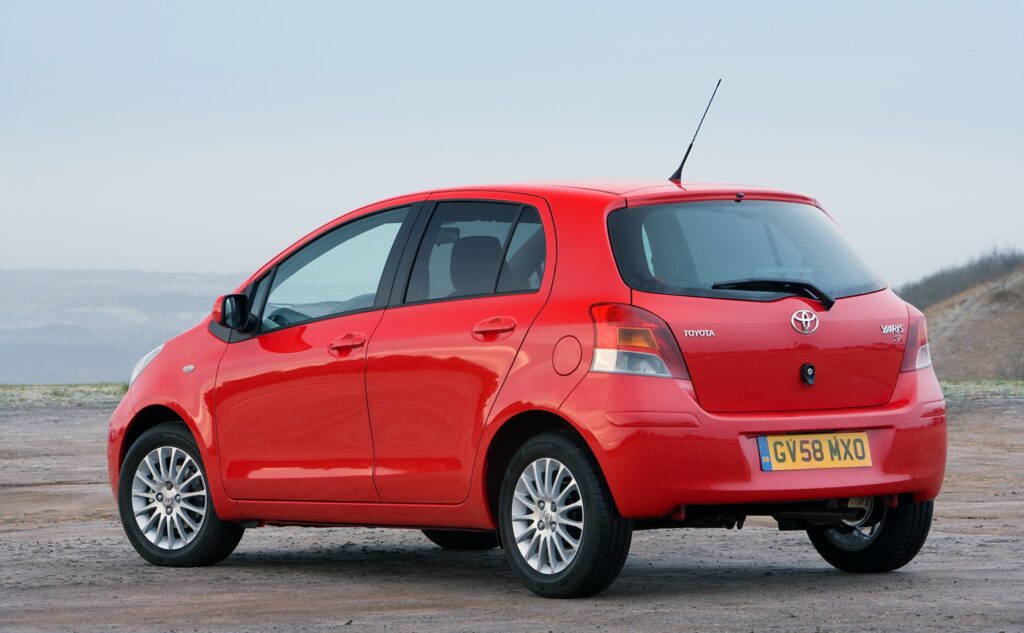
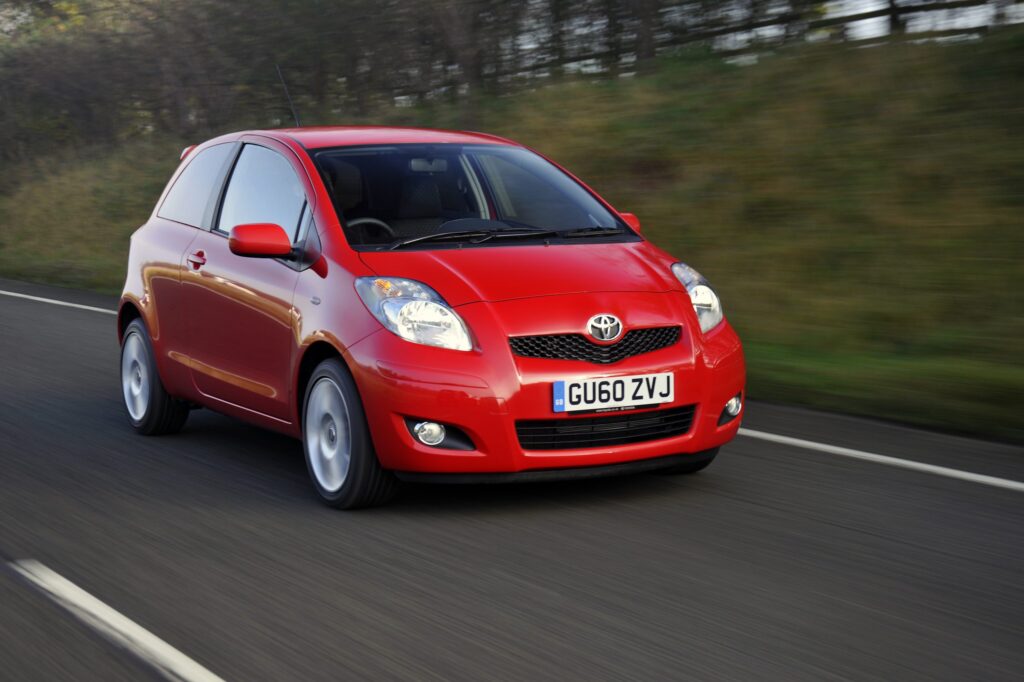
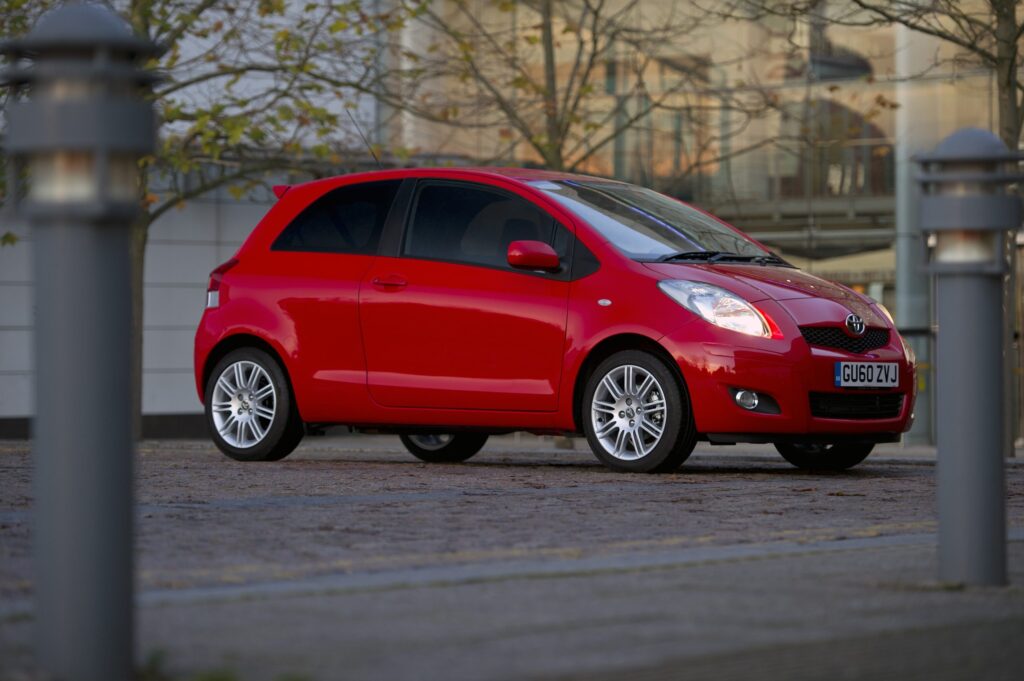
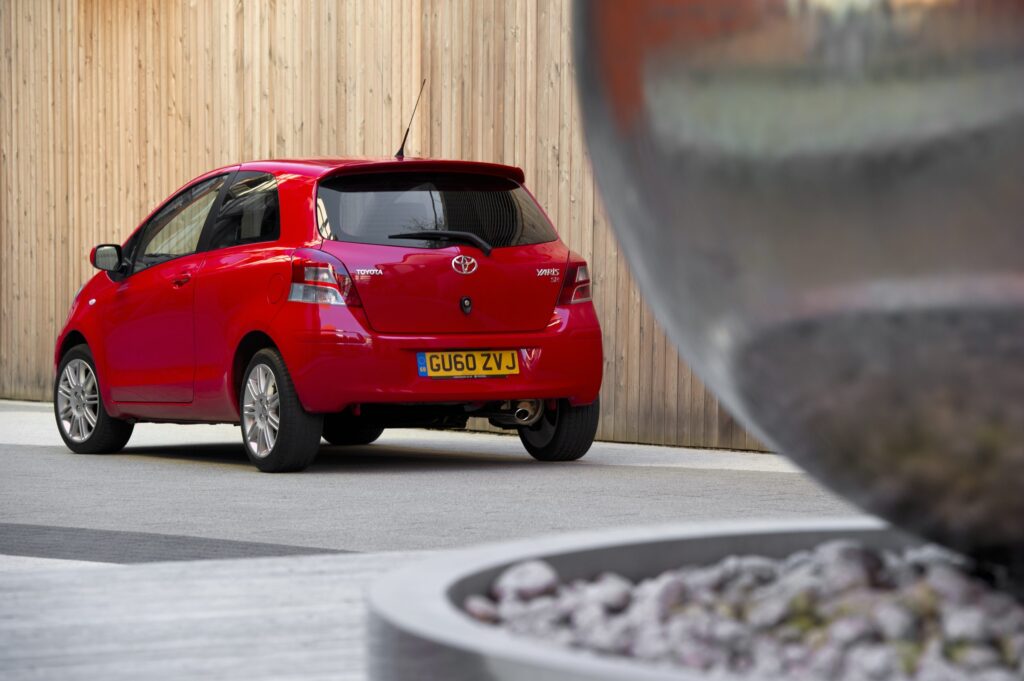
This variety allows buyers to choose the ideal model from their preferred markets, leading to a diverse selection of Yaris variants imported from Europe, America, the UK, and Japan. While the diversity is great, it raising a big red flag about the Yaris which unfortunately has nothing to do with the manufacturer, rather by loose import and registration regulation in Ghana leading to, dangerously modified cars on the road.
| ENGINES | 1.0 liter inline 3/ 1.3 inline 4 / 1.5 liter inline – 4 |
| POWER | 66 -70bhp / 86 bhp / 108 bhp |
| TORQUE | 69 Ib-ft / 90 lbf⋅ft / 105 Ib-ft |
| TRANSMISSION | 5 or 6 speed manual and 4 speed automatic CVT |
DANGERS OF SOME TOYOTA YARIS ON OUR ROADS.
Many of the Toyota Yaris on Ghanaian roads have been imported from many countries including Japan and UK, two nations that drive right hand side while Ghana hasn’t driven on the right side of the road since 1974 when we transitioned to left hand drive in a bid to align with the driving standards of neighboring West African countries which were already predominantly left hand.
The transition from right-hand to left-hand drive meant that right-hand steering vehicles could no longer be registered or considered road-legal in Ghana. To adapt, some companies developed a creative solution: modifying imported Toyota Yaris models, both hatchbacks and sedans (known as the Vitz and Belta in Japan) by shifting the steering orientation to the left. This involves reworking the interior panels, electric wiring and steering mount to fit the new configuration, allowing these modified cars to comply with local regulations.
Whiles these modifications make the Yaris comply with regulation, it raises safety concerns of safety on our roads. Many examples of modified Toyota Yaris have been plagued by electrical issues due to poor re-wiring, some vehicles have known to go up in flames and burn down to crisps. This not withstanding, the issue of occupant safety in a heads-on crush is also called into questioned due to the fragile nature of the cut-up and reworked interior.
YARIS COMMANDS A STRONG RESALE VALUE AND HIGH MARKET DEMAND.
As of this writing, a freshly imported 2010 second-generation Toyota Yaris is priced by private sellers between 100,000 and 135,000 cedis, or approximately $6,000 to $8,300 steep for a car that’s nearly 15 years old. Yet Ghanaians are willing to pay this amount without hesitation, thanks to Toyota’s strong resale value. Even locally registered Yaris models that have been on the road for several years still sell for around 40,000 cedis.
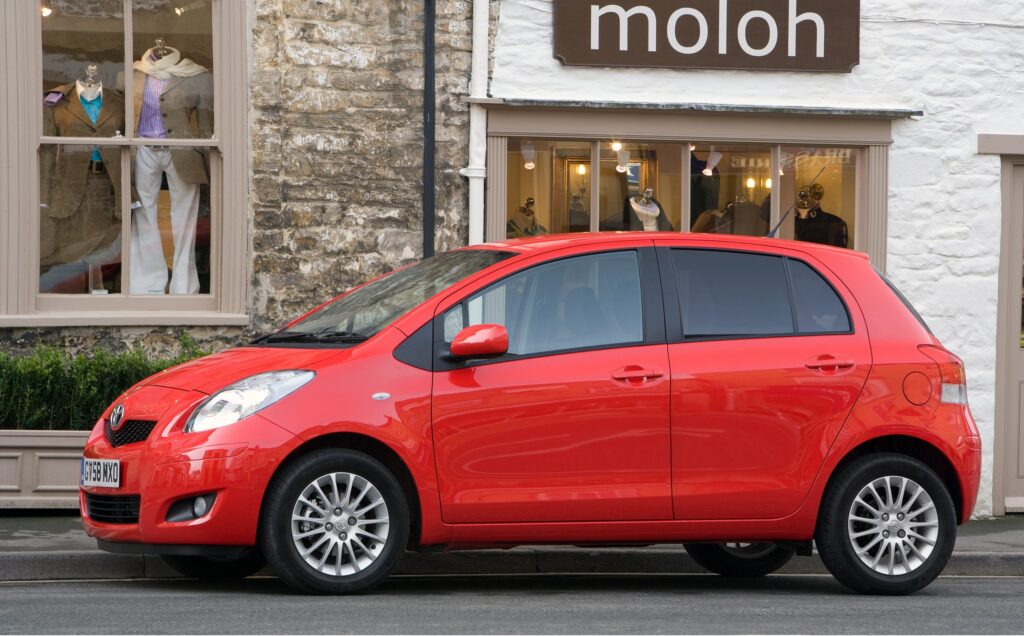
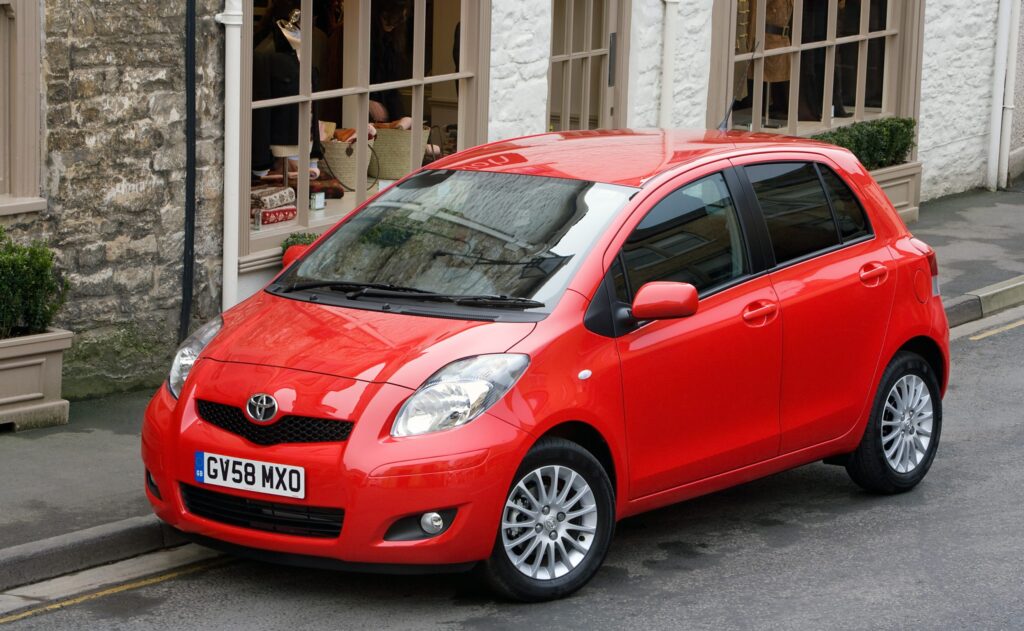
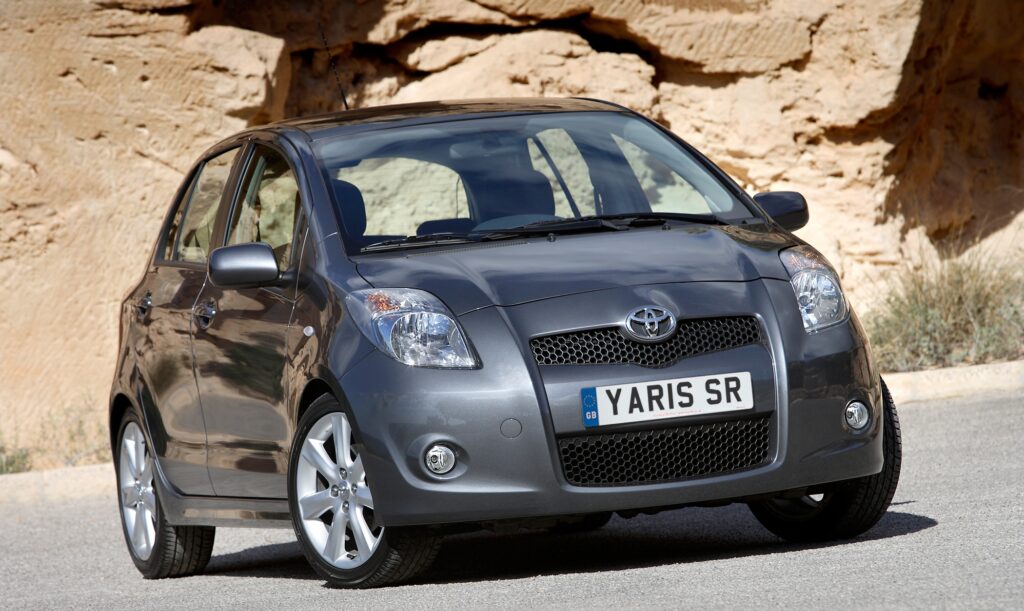
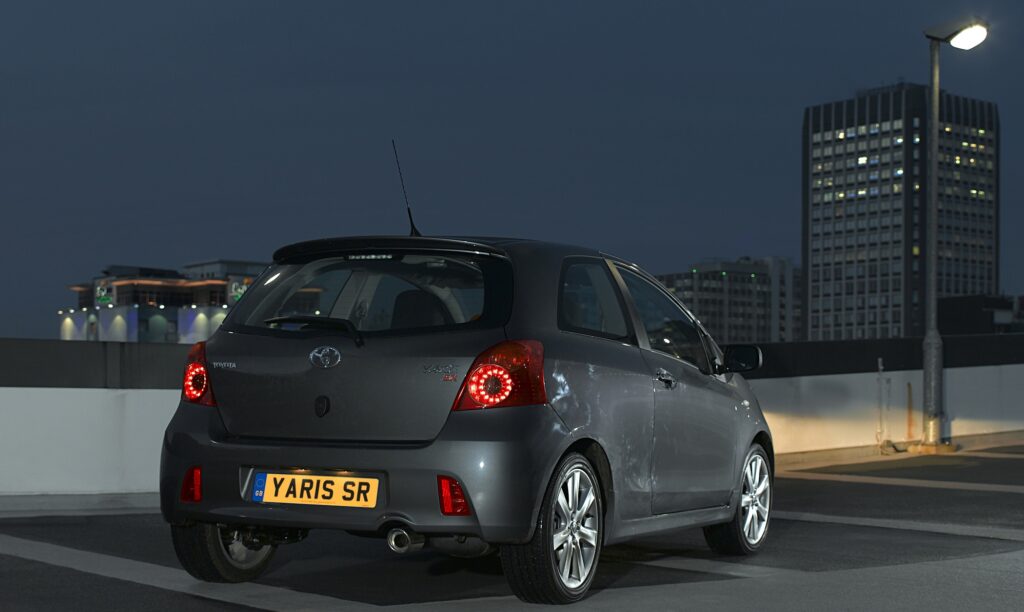
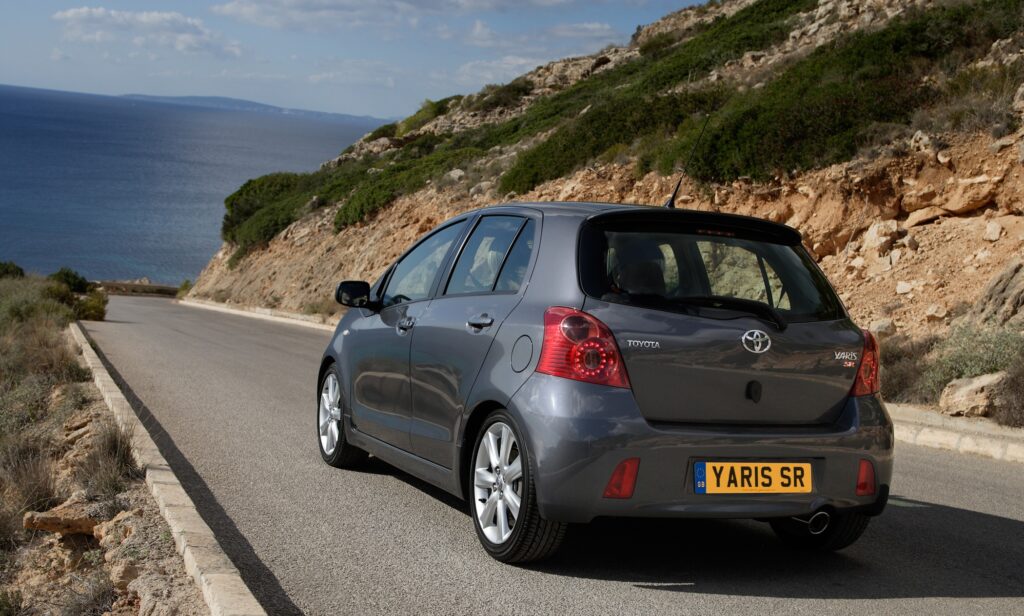
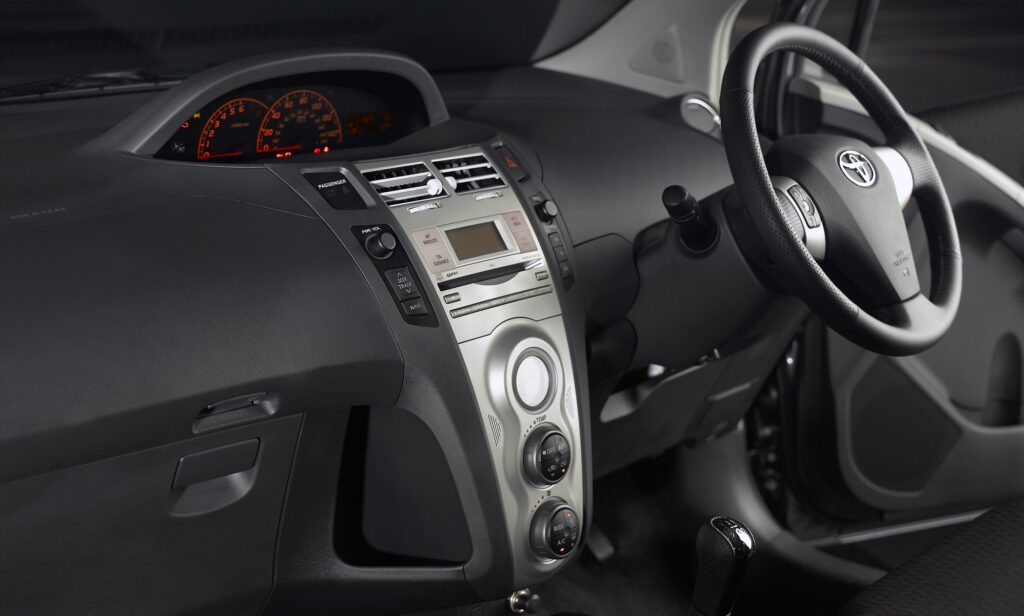
This robust resale value reflects not only Toyota’s reputation for reliability but also the Yaris’s affordability in maintenance and fuel efficiency, which are highly valued in Ghana’s automotive market. With rising fuel costs and the expense of imported parts, Ghanaians prioritize vehicles that are easy to service and economical to run. The Yaris ticks these boxes perfectly, making it a sound long-term investment, even at a premium price.
POPULAR CHOICE FOR RIDE HAILING SERVICE DRIVERS.
Another major factor contributing to the Toyota Yaris’s popularity in Ghana is the rapid growth of ride-hailing services like Uber, Bolt, Yango, and others. Many drivers on these platforms have chosen the Yaris for its outstanding fuel economy and ease of maintenance, essential features for vehicles that cover hundreds of miles daily, placing a heavy toll on both car and driver. The Yaris’s low fuel consumption helps drivers save significantly on operating costs, while its reliable, low-maintenance design ensures that they can keep their vehicles on the road with minimal downtime.
Its safe to say the Toyota Yaris has earned its place as a favorite on Ghanaian roads due to its remarkable blend of reliability, fuel efficiency, and affordability. From personal car owners to ride-hailing drivers, the Yaris appeals to a wide range of Ghanaians who value a car that can handle the demands of daily life while keeping costs low.
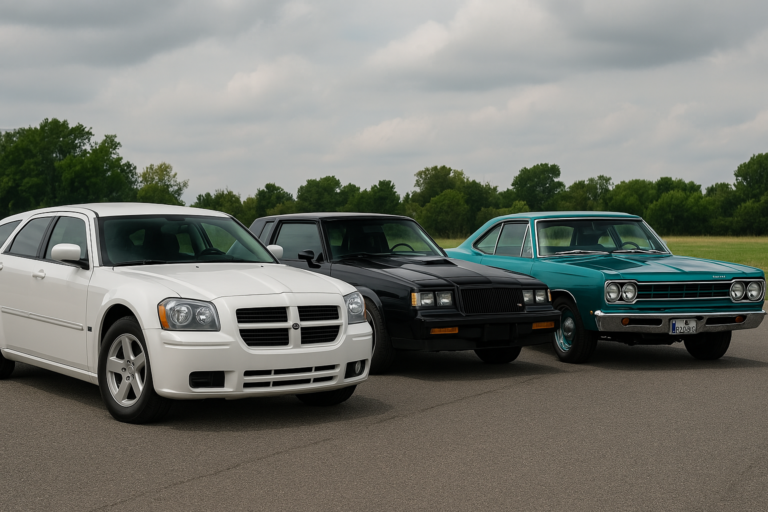


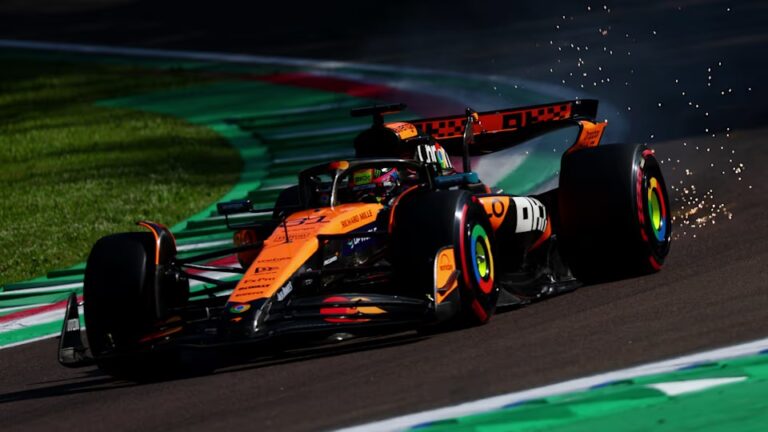
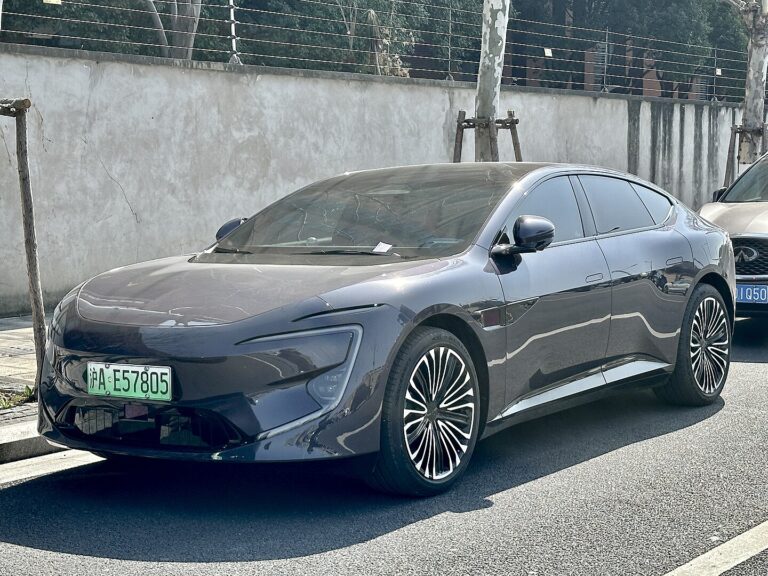
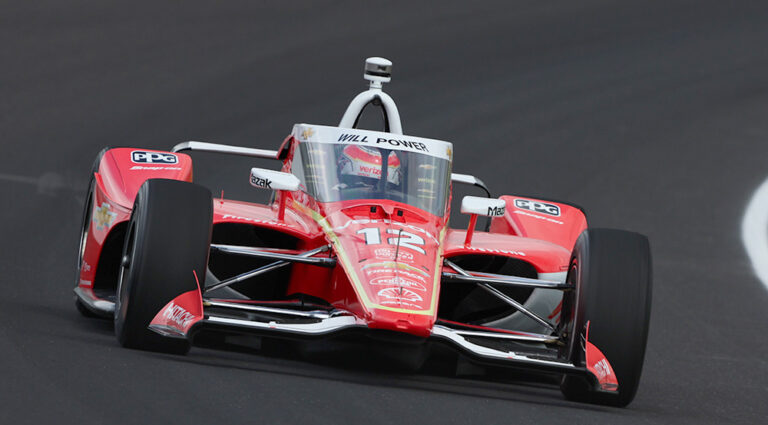
Awesome write up bro , it’s detail and will obviously be of help in guiding people like us to make good choices when going in for an affordable vehicle at a good price.
Great
That’s a well-written impartial review. Great job.